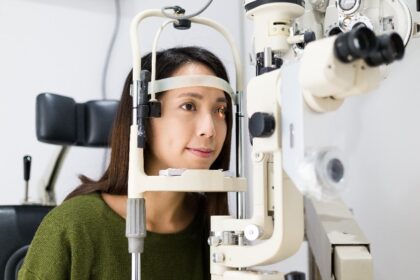Good vision is something many people take for granted, but unrecognized vision issues can affect daily life in subtle ways. From trouble seeing at night to persistent headaches, the symptoms are not always easy to connect to underlying eye concerns. Recognizing these signs early may help you better manage your overall visual health.
What Are Common Vision Symptoms?
Vision issues often present with noticeable signs that can range from minor annoyances to significant disruptions. Watch for these common symptoms:
- Blurred vision: Objects near or far appear out of focus, making it difficult to see sharp details clearly.
- Squinting: A tendency to squint may indicate difficulty focusing on both distant and close objects.
- Eye strain: Discomfort or fatigue in the eyes that occurs after prolonged activities, such as reading or working on screens.
- Light sensitivity: Discomfort in bright environments, especially outdoors or under artificial lighting.
- Double vision: Seeing two images of a single object, which might occur continuously or occasionally.
These symptoms may develop gradually and feel easy to dismiss. Paying attention to them is a straightforward way to understand how your vision is performing.
How Can Headaches Signal Vision Issues?
Frequent headaches may be another indicator of an eye problem. Straining to see clearly or focus can stress the muscles around the eyes, leading to tension headaches. This discomfort often occurs after reading, working on screens, or engaging in prolonged periods of concentration.
The location and type of pain may offer some clues. Frontal headaches, for instance, may arise from difficulties with focusing. While glasses or adjustments to visual tasks can help, ongoing issues might require an evaluation to determine if vision problems are contributing. Spotting patterns in when and where headaches occur is one step toward uncovering a possible connection to your eyesight.
What Role Does Night Vision Play?
Difficulty seeing clearly at night, also known as poor night vision, is a common concern that often goes unnoticed until it starts to interfere with daily activities, such as driving. This issue may indicate underlying changes in vision, even if your daytime vision appears unaffected. Understanding the signs can help you address potential problems early.
Here are some common signs of poor night vision and what they might mean:
- Slower adjustments to changes in light: Struggling to adapt when moving from a bright to a dim environment could indicate changes in how your eyes process light.
- Halos around lights: Seeing glowing rings around headlights or streetlights may suggest changes in the eye’s lens or cornea.
- Difficulty distinguishing objects in dim settings: Trouble recognizing shapes or details in low light may indicate a loss of contrast sensitivity or other eye health concerns.
Paying attention to these challenges is necessary for maintaining your overall eye health. If night vision issues arise, consulting an eye care professional can help uncover and address any underlying causes.
Consult a Specialist
Recognizing symptoms of potential vision issues is necessary, but consulting an eye care specialist is key to addressing the root cause. A professional can evaluate your symptoms and provide tailored solutions to protect your sight. If you’ve noticed changes in your vision, scheduling an appointment is a smart step toward maintaining eye health. Taking action now can help preserve and strengthen your vision for the future.









